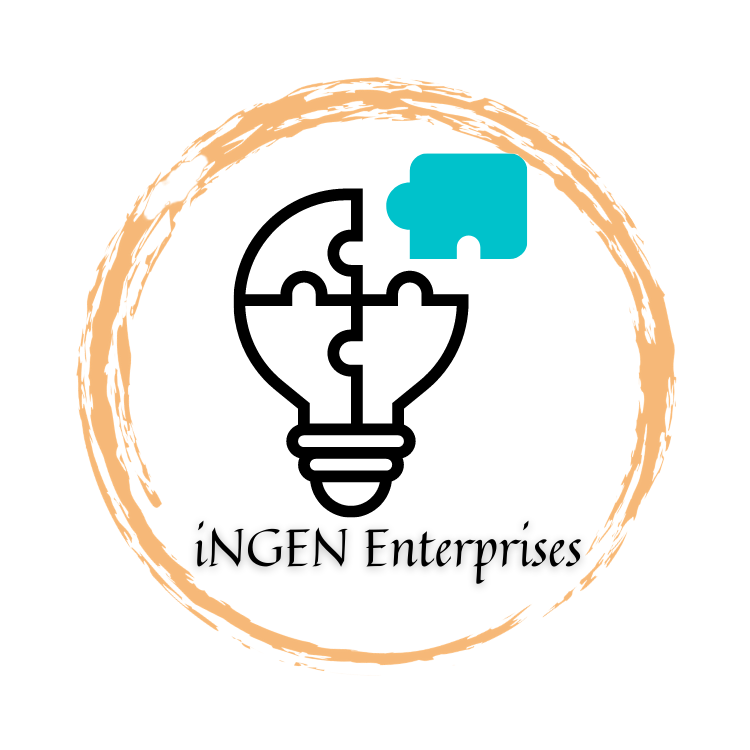In the pursuit of excellence, individuals and organizations continuously seek ways for enhancing performance and overcoming interferences to achieve their goals. However, amidst the complexities of modern work environments, realizing one’s full potential and maintaining peak performance can be challenging. In this guide, we delve into the strategies, principles, and techniques that can help individuals and teams unlock their inherent capabilities, navigate obstacles, and strive for excellence.
Enhancing Performance requires more than just skill and determination; it demands a strategic approach to managing both potential and interference. For that reason, it is important to access the proper insight about self, which can help the individual or team unlock their full potential while navigating and minimizing obstacles that hinder progress.
Before we jump into the specifics of enhancing performance, it is important to define and identify those factors inhibiting performance. Then, it is essential to engage in key strategies to enhance performance through Coaching and Mentoring.
Understanding Performance Potential Interference
Performance potential interference encompasses a myriad of factors that impede an individual’s ability to perform at their best. These potential interferences can manifest internally, such as self-doubt, limiting beliefs, or fear of failure, as well as externally, including distractions, competing priorities, and environmental stressors.
Internally, limiting beliefs are deeply ingrained convictions or perceptions that constrain us in some way. They are beliefs about ourselves, others, or the world around us that limit our ability to succeed and thrive. Self-doubt, on the other hand, is the lack of confidence or faith in oneself and one’s abilities. It’s the voice in our head that tells us we’re not good enough, smart enough, or capable enough to achieve our goals.
- Self-limiting beliefs can take many forms and vary from person to person. Some common examples include:
-
- “I’m not talented enough to pursue my passion.”
- “I’ll never be successful because I don’t have the right connections.”
- “I’m too old/young to achieve my dreams.”
- “I always fail when I try something new, so why bother?”
An external distraction is any stimulus or interruption that diverts our attention away from the task at hand. It could be a ringing phone, social media notifications, loud noises, or interruptions from colleagues. External distractions disrupt our focus and make it challenging to concentrate on important tasks, leading to decreased productivity and performance.
- Competing or conflicting priorities occur when we have multiple tasks or goals vying for our attention and resources. It’s a common challenge in both personal and professional life, where we must juggle various responsibilities and commitments simultaneously. Managing competing priorities requires effective prioritization, time management, and decision-making skills.
- An example of an external stressor is a noisy and chaotic work environment. Constant background noise, interruptions, and a lack of privacy can create feelings of overwhelm, frustration, and anxiety, impacting overall well-being and performance.
To recognize and address these interferences is fundamental to unleashing one’s full potential and achieving sustainable performance excellence.
Recognizing Internal and External Interferences
Recognizing internal and external interferences is the first step towards overcoming them. They often manifest as recurring thoughts or patterns of behavior that hold us back from taking action or pursuing our goals. Pay attention to moments when you feel hesitant, fearful, or self-critical. These may be indicators of underlying self-limiting beliefs.
Here is where engaging an experienced coach can bring an infinite amount of value. Coaching serves as a transformative tool for enhancing performance across various domains. Whether in sports, business, or personal development, effective coaching empowers individuals to set meaningful goals, develop actionable strategies, and navigate challenges with resilience and confidence. Through supportive guidance, constructive feedback, and accountability, coaches facilitate the realization of individual potential and the attainment of desired outcomes.
The Role of Coaching in Performance Management
Coaching plays a vital role in performance management. Experienced coaches can foster a culture of continuous improvement, empower individuals to take ownership of their development, and align individual performance with the established objectives. Moreover, coaching enhances communication, builds trust, and strengthens relationships between individuals and their communities leading to higher levels of engagement.
Successful coaching is characterized by three essential elements:
- Trust and Rapport: Building trust and rapport establishes a foundation of mutual respect and understanding, enabling open and honest communication between coach and coachee.
- Active Listening and Empathy: Practicing active listening and empathy allows coaches to connect with individuals on a deeper level, understand their perspectives, and provide meaningful support and guidance.
- Goal Clarity and Action Planning: Clarifying goals, defining actionable steps, and holding individuals accountable for their commitments drive progress and results, transforming aspirations into tangible outcomes.
The team at iNGEN Enterprises uses coaching as a catalyst for cultivating potential and driving performance excellence by:
- Empowering Individuals: Coaching empowers individuals to take ownership of their development, leverage their strengths, and overcome obstacles, fostering a sense of autonomy and self-efficacy.
- Facilitating Learning and Growth: By fostering a growth mindset and encouraging experimentation and reflection, coaching stimulates continuous learning, innovation, and adaptation in individuals and teams.
- Building Resilience and Adaptability: Through supportive guidance and feedback, coaching helps individuals develop resilience, adaptability, and emotional intelligence, equipping them to thrive in dynamic and challenging environments.
Our coaches play a crucial role through the relationship with each customer maintaining effective performance and fostering excellence by:
- Identifying and Addressing Performance Challenges: Coaching enables individuals to identify and address performance challenges proactively, preventing issues from escalating and hindering overall effectiveness.
- Promoting a Culture of Continuous Improvement: By encouraging reflection, providing constructive feedback, and supporting development initiatives, coaching fosters a culture of continuous improvement and innovation within the organization.
- Encouraging Accountability and Ownership: Coaching cultivates a sense of accountability and ownership among employees, motivating them to take initiative, set ambitious goals, and strive for excellence in their roles.
Conclusion
In today’s dynamic and competitive landscape, maximizing performance requires a strategic approach to managing potential and overcoming interferences. By embracing coaching principles, cultivating a growth mindset, and fostering a culture of continuous learning and improvement, the team at iNGEN Enterprises can coach individuals towards unlocking their full potential, navigate obstacles, and achieve remarkable success. Through effective coaching, individuals can cultivate resilience, adaptability, and a relentless pursuit of excellence, driving personal and organizational performance to new heights.
Contact the team at iNGEN Enterprises. Through actionable insights and strategies, individuals and organizations are able to maximize performance and achieve excellence. By harnessing the power of coaching and adopting a proactive approach to managing potential and interference, we can help individuals and teams realize their aspirations and thrive in today’s dynamic and competitive environment.



